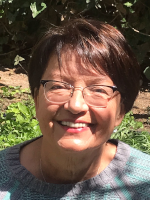PLENARY SPEAKERS
Hydrogen role in energy future defined by new thermodynamic paradigm in energy value

Prof. Frano Barbir
Faculty of Electrical Engineering, Mechanical Engineering and Naval Architecture, University of Split
Frano Barbir is Professor Emeritus and continues to work as a Project Activity Leader on several R&D projects. He holds a Dipl.-Ing. degree in mechanical engineering and an M.Sc. degree in chemical engineering, both from the University of Zagreb, and a Ph.D. in mechanical engineering from the University of Miami. He has been actively involved in the hydrogen and fuel cell fields since 1989, working in both industry and academia, first in the US and then in Croatia. His research interests include studies on heat and mass transfer in PEM fuel cells, fuel cell performance and durability, and the role of hydrogen energy in the context of the energy future. He is the author and/or co-author of over 200 articles published in scientific and technical journals, books, encyclopedias, and conference proceedings, as well as 7 US and one EU patents on various aspects of fuel cell stack and system design and operation. His book, PEM Fuel Cells: Theory and Practice, published by Elsevier/Academic Press in 2005 (2nd edition in 2013), has been translated into Chinese, Korean, and Farsi, and is used as a textbook in many universities worldwide. He is the founding president of the Croatian Hydrogen Association and executive vice president of the International Association of Hydrogen Energy. He is a member of the Croatian Academy of Technical Sciences and received the Croatian National Science Award for lifetime achievements in technical sciences.
Photobiological Hydrogen Production by Purple Nonsulfur Bacteria from Biomass

Prof. Inci Eroglu
Middle East Technical University
Inci Eroglu, a Professor Emeritus, is widely recognized for pioneering work in biological hydrogen production, especially via photobiological routes. She received her Bachelor's, Master's, and Doctorate degrees from the Chemical Engineering Department at the Middle East Technical University (METU), Ankara, Turkiye. She worked as an academic in the same department for 43 years. Her research focuses on hydrogen energy systems, biological hydrogen production, alkaline fuel cells, and proton exchange membrane fuel cells. She is one of the leaders in The Biohydrogen Research Group at METU, who are working on biological hydrogen production by photosynthetic purple non-sulfur bacteria, emphasizing photobioreactor design, indoor and outdoor bench-scale to pilot scale applications, in single and multistage operations, with defined medium and waste water from olive mills, sugar factories' side products, and dark fermenter effluents. She was the leader of the Photofermentation Work Package of the EU 6th Framework Project “Nonthermal Production of Pure Hydrogen from Biomass, HYVOLUTION.” She has been an Executive Board Member of the International Association for Hydrogen Energy (IAHE) since 2006 and the founder member and vice president of the Turkish National Hydrogen Association. She received the Nejat Veziroglu Special Award in 2019 for her research and achievements in Hydrogen Energy.
How the modular construction of purple bacterial light harvesting complexes facilitates their ability to adapt to life in very different ecological niches

Prof. Richard Cogdell
University of Glasgow, Institute of Molecular Cell and Systems Biology
Professor Richard Cogdell is the Hooker Professor of Botany at Glasgow University. He has worked in the area of the primary reactions of purple photosynthetic bacteria for more than 50 years, first with reaction centres and then with light harvesting complexes. Long before the structure of the reaction centres was determined, he, together with Bill Parson and Rod Clayton, elucidated the main features of the internal electron transfer chain in the RC’s. Since then, he has been a major player in the area of light harvesting. He and his group determined the first crystal structure of an LH2 complex and then the first crystal structure of an LH1-RC complex. He has also been involved in numerous functional studies on light harvesting complexes using many different types of spectroscopy, from fs time resolved studies to single molecule ones. He is a Fellow of the Royal Society and the Royal Society of Edinburgh as well as a Past President of the International Society of Photosynthesis Research and the International Carotenoid Society.
Light-Induced Water Oxidation in Photosynthesis

Prof. Wolfgang Lubitz
Max Planck Institute for Chemical Energy Conversion
Wolfgang Lubitz studied Chemistry at the Free University (FU) Berlin (1969–1974), where he also received his doctoral degree (1977) and his habilitation (1982). He was a research scientist at UC San Diego, USA (1983/84) in Biophysics and subsequently Assistant and Associate Professor at FU Berlin (1979 -1989) in Chemistry. In 1989, he became Professor at the Physics Department of the Universität Stuttgart. In 1991 he took over a Chair of Physical Chemistry at Technical University (TU) Berlin. In 2000, he became a Scientific Member of the Max Planck Society and Director at the Max Planck Institute (MPI) for Bioinorganic Chemistry (now MPI for Chemical Energy Conversion) in Mülheim/Ruhr and became an honorary professor at Düsseldorf University, Germany. His scientific work is focused on natural and artificial photosynthesis, function of metalloproteins (hydrogenases, water oxidase), and molecular spectroscopy, especially magnetic resonance techniques. His work has been published in over 500 scientific publications and decorated with a number of awards and fellowships. He received honorary doctorates (Dr. h.c.) from the Universitet Uppsala, Sweden (2008) and the Université d'Aix-Marseille, France (2014) and has been President (2005 – 2008) of the International EPR Society and member (2004-2024) and Vice President (since 2014) of the Council for the Annual Nobel Laureate Meetings in Lindau, Germany.











